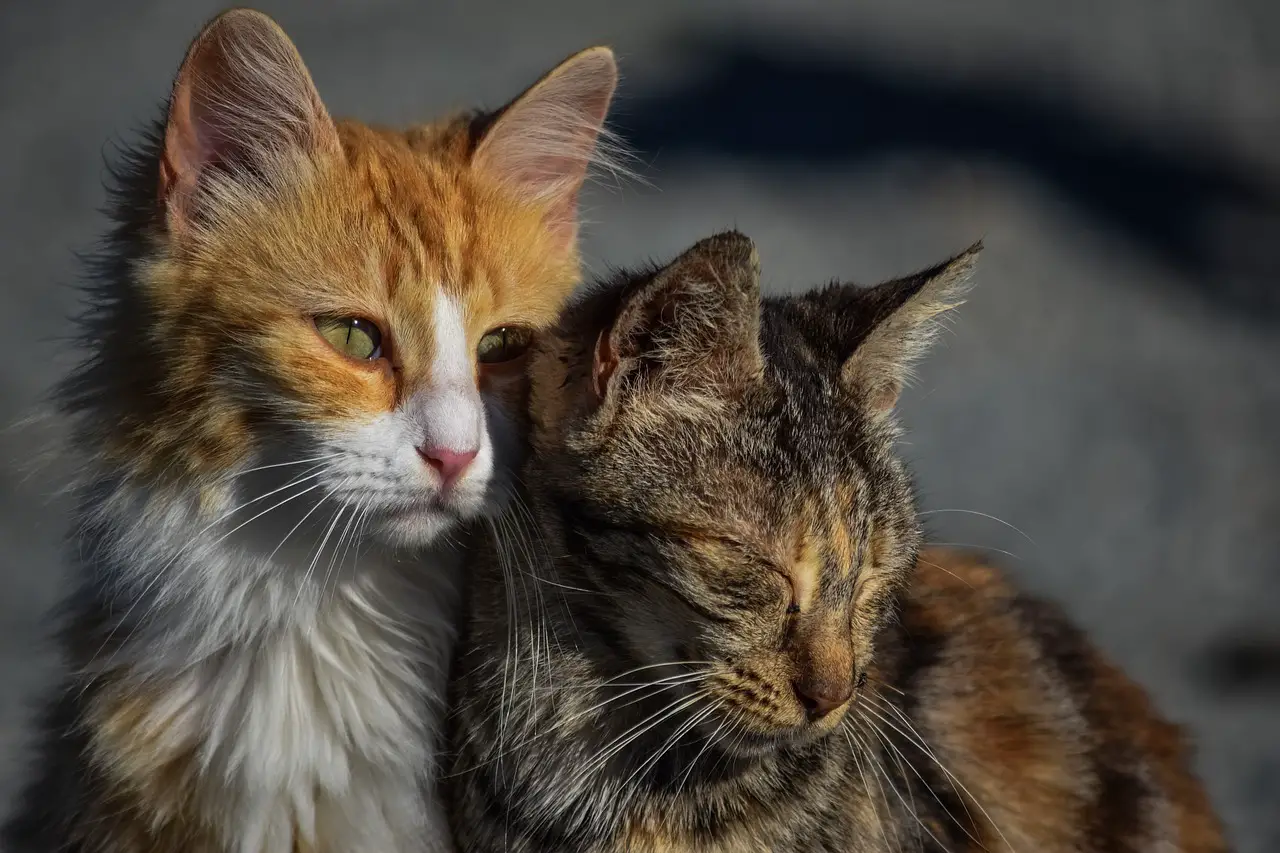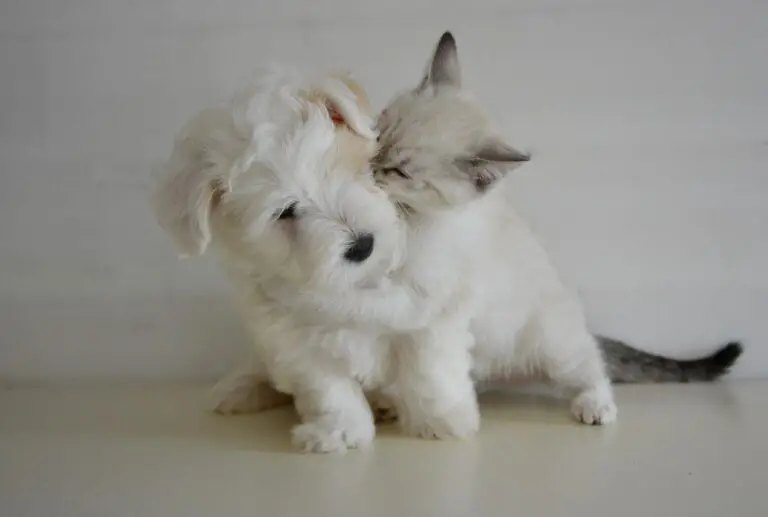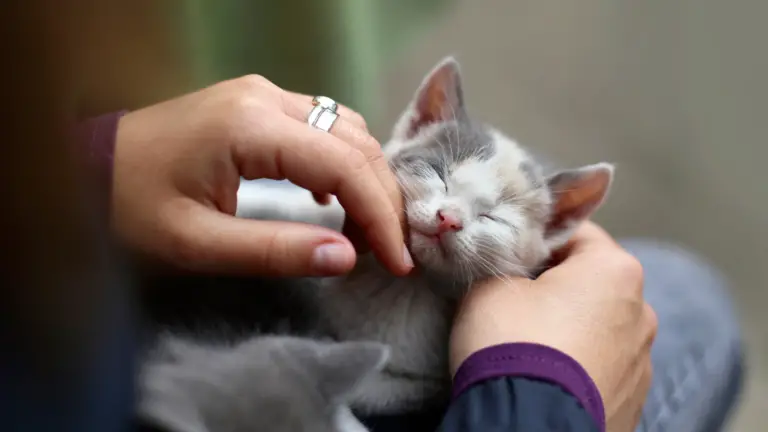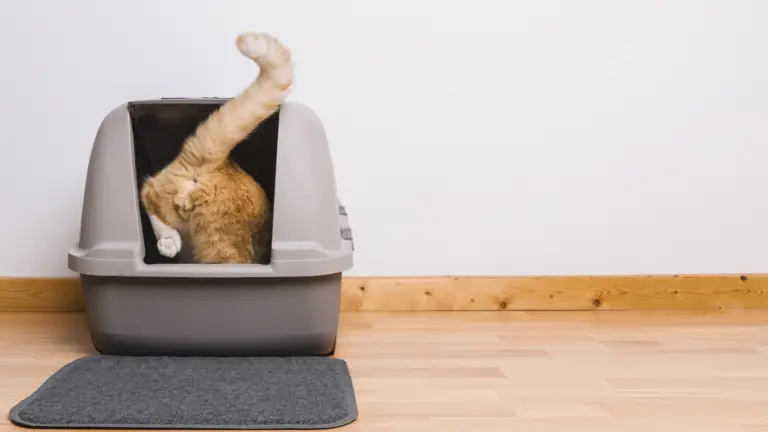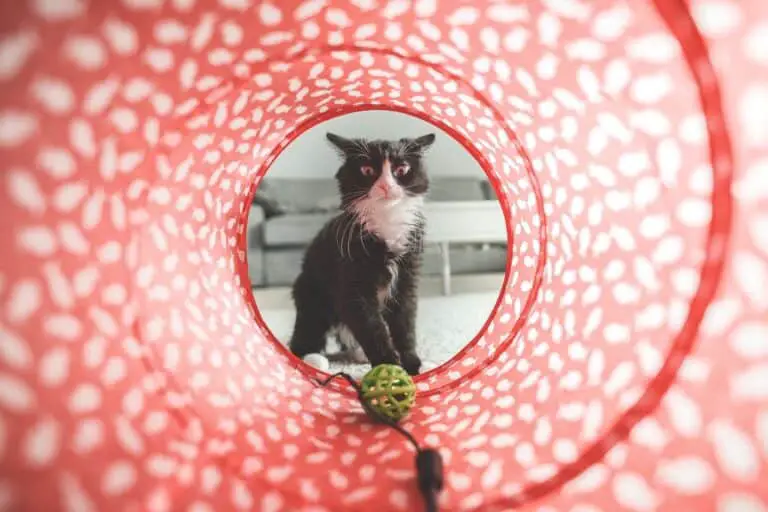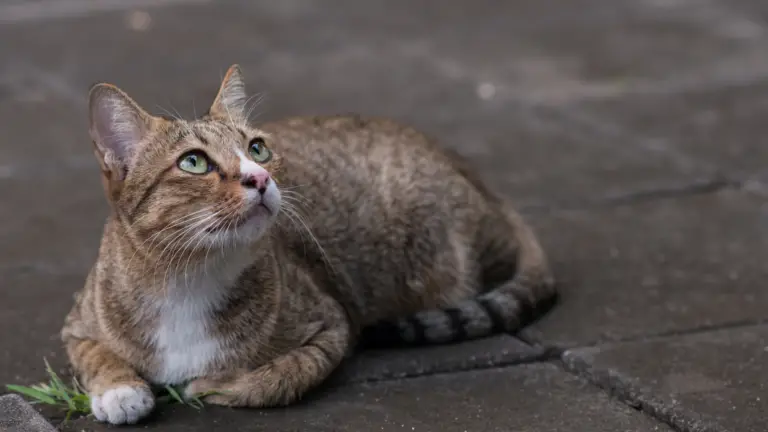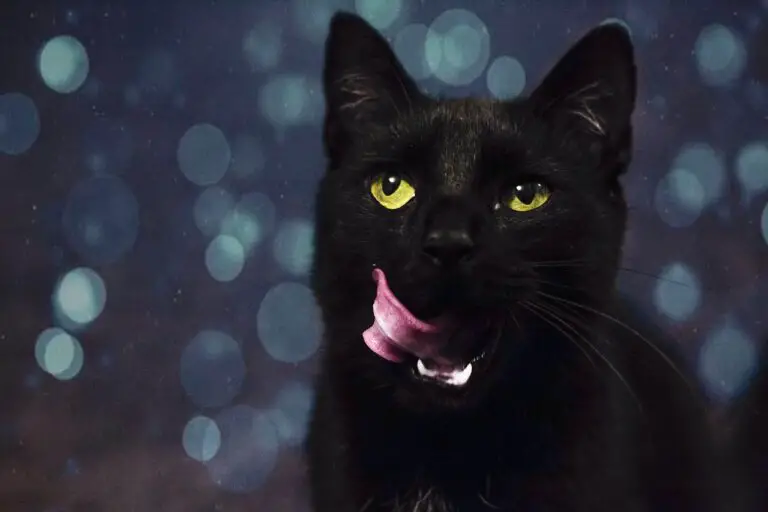CAN CATS BE AUTISTIC? BOTTOM LINE
Can cats be autistic? Or such a thing doesn’t even exist? In popular belief, cats are thought to be solitary creatures that think only about food, sleep, and hunting. Cats are believed to be selfish and not affectionate, contrary to dogs. If you read what autism is, we could argue that based on its definition, most cats are autistic. Is that so?
Cats can’t be autistic because autism is associated with humans’ challenges with social skills and communication with others. Autism does not define cats’ or other pets’ behaviors. However, cats may behave in a way to resemble humans with autism so that they seem autistic.
Let’s see what cats may do to resemble people affected by autism and what we can do to help them.
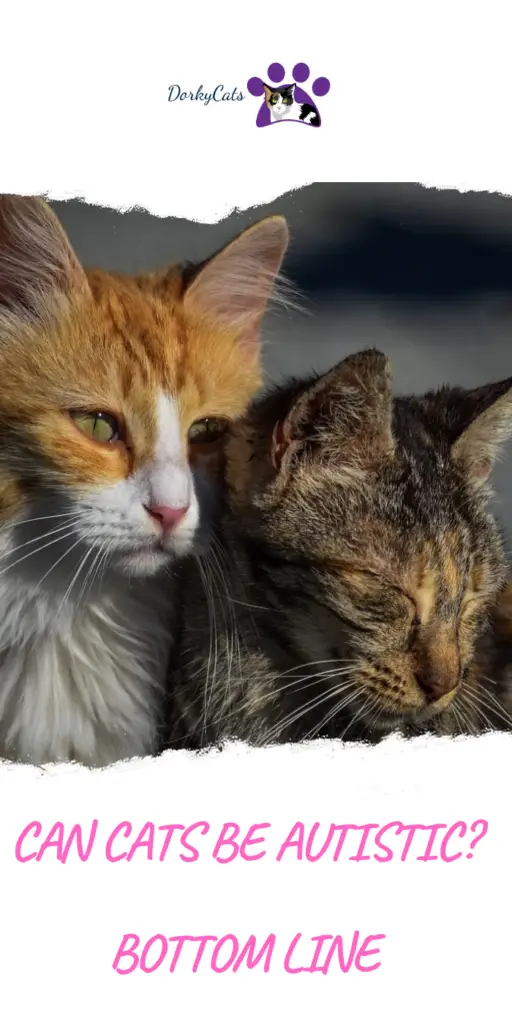
WHAT IS AUTISM?
It is challenging to define autism because medical publications refer to it as a spectrum of behaviors. Additionally, standing to those publications, autism can differ from person to person since there is a broad spectrum of abilities and characteristics that can be found in autistic people.
In fact, autism is called ASD (autism spectrum disorder). However, if there is a common or prominent behavior in people with autism, it is their difficulties or differences in relating with others or communicating with others. People affected by autism can communicate, interact, learn and behave in ways that are different from others.
Autistic people can have solving problems abilities ranging from gifted to severely challenged. Some of them need a lot of help in their lives, while others do not need assistance.
But, there is no medical test yet available to diagnose this disorder. It means that introverted people or a different personality can easily be mistaken for autism. However, autism often includes the following characteristics and symptoms:
- Problems with social, communication, and emotional skills
- Repeat the same behavior
- Not wanting to change daily activities
- Not point at objects when interested
- Not look at an object or direction when another person points at it
- Lack of interest in other people
- Avoid eye contact
- Wanting to be alone
- Having troubles understanding other people’s feeling
- Having trouble talking about their feelings.
- Seems unaware of other people talking to them even though responding to sounds
- Very interested in people but not interact with them
- Repeat words said to them
- They can’t express their needs
- Problem adapting to changes
- Unusual reactions to smell, taste, feel, or sound of things.
Are some of these characteristics resembling something a cat can do? Well, we may have just discovered that all cats are actually autistic!!!!!!
Joke apart, it is clear that we cannot compare cats to humans in terms of mental abilities and communication abilities. Humans are way more evolved. And cats can’t be diagnosed with a human mental condition.
CAN CATS BE AUTISTIC?
Well, can cats be autistic? If we look at the list above we can say that cats, not only can be autistic, but actually ARE autistics.
For example, repeating the same behavior, avoiding eye contact, being alone, problem adapting to changes, unusual reactions to sounds, and not responding when you call them are just a few of the things cats do!
But no, cats cannot be autistic. Autism is a human condition. Some cats have unusual behaviors or genetic abnormalities that impact their cognitive functions or their usual feline abilities. An example of this can be when cats are born with defects that make them disabled mentally or physically. Or genetic abnormalities like feline Down syndrome.
Such cats are normally called special needs cats. Are cats that cannot survive independently, they need assistance from human their owners to properly function.
We can also say that cats can have symptoms that resemble autism, and we could informally refer to them as autistic. But, those should be bizarre behaviors, even for cats.
I would not be worried if a cat wants to be alone or is very independent. Some cats do not socialize with humans or other cats. It is not a reason to think they have a sort of autism.
THINGS THAT CAN MAKE YOU THINK YOUR CAT IS AUTISTIC
On the other side, cats can be very depressed, sad, disinterested in their environment, and sleeping most of the time. If they are physically in shape, they can resemble someone with autism. But most probably, the cause is another.
Some cats can be easily scared and are always afraid. They are shy cats and need to be taken care of differently than cats who are trusting.
Things that shy cats do, that resemble autism are:
- Hide constantly
- Runaway and hide at every sound or sudden movement
- Runaway from strangers, trust only his owner
- They have a tough time with changes. They become terrified
- May not get along with other cats or pets
- They are very selective of people that can touch them
- Have a hard time relaxing. They need a tranquil environment
All those things can make you think your cat is autistic, but he is only a shy cat. Shy cats need to be respected. They stress easily, which can make them sick. They need a quiet home and a caring family. If they have it, they will come out of their protective walls and show their true personality.
CAN CATS SENSE AUTISM?
Despite common beliefs, cats become affectionate to their humans. It has been proven that cats can get protective of their owners and even sense when something is wrong.
There are also studies confirming that cats can be more beneficial than dogs to people with autism. Cats are small, thus less challenging. They are fun and affectionate. Owning a cat can improve social skills, empathy and reduce anxiety in autistic people. It is a learning and growing experience.
Children with autism bond easily with cats, and they grow responsible for another living being since they have to take care of them. Cats have been found to help improve conditions in people with autism.
Cats are easy to care for, and they look cute, making it easy for people with autism to take care of them and interact with them. While dogs can perform more tasks and be trained more easily to do certain things, cats may be suited better for a category of people affected by autism.
RELATED QUESTIONS
Here are some related questions and answer:
- Can cats have special needs?
Cats can have special needs due to physical disabilities, like missing limbs, blindness, or various diseases, or neurological problem. Those cats need extra care and attention.
- Can cats have a mental illness?
Cats cannot have mental illnesses as we intend for humans. Some cats can have extremely odd behavior due to health problems, stress, and other situations. Cats stress easily in the presence of changes and dangers in the environment. Such stress can create odd and behaviors in cats resembling a mental illness.
- Can cats have Down syndrome?
No cats can’t have Down syndrome, since it is a human illness. Cats can have genetic abnormalities that make them look and behave similarly to people with Down syndrome.
- What are the best cats for autistic people?
The best cat breeds for autistic people are those that are known to be calm and affectionate. Here are some of the most affectionate breeds of cats:
- RAGDOLL
- SCOTTISH FOLD
- SPHYNX
- MAIN COON
- PERSIAN
- SIAMESE
- BOMBAY
- TONKINESE
- AMERICAN SHORT AIR
- BIRMAN
CONCLUSION
I hope this was useful for you. If you have any question and want to add something, write it in the comments below.

